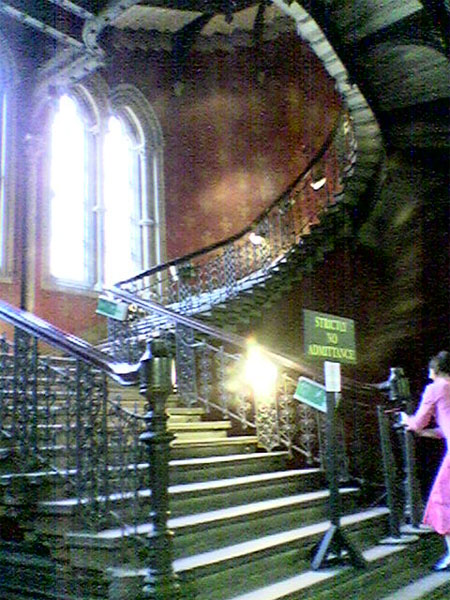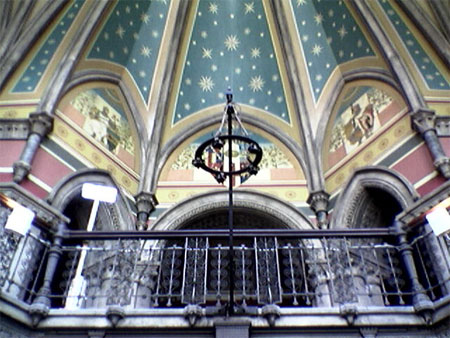Today’s social media controversy comes courtesy of former Doctor Who show-runner Russell T Davies who has gone on record in an interview that he believes gay roles should generally be played by gay actors.
As you might expect, the response to this argument has been both immediate and strong. Some people have argued that it’s against the whole principle of acting to say that people should only play people like themselves (while obviously skipping over the obvious complexities of — or analogies to — a white actor playing a black character or a man playing a woman’s experience). Others have argued that if straight actors can’t play gay, then gay actors should not be able to play straight characters either.
In the middle of a lot of this is the same sort of generalized tedious sentiment we often get in these kinds of discussions – stuff that goes along the lines of, “it’s all political correctness gone mad” – groans about the “woke brigade”.
Now, these positions are infuriating, frustrating and wrong, but for many people why they are wrong is far from obvious. Superficially, they seems simple, commonsensical, self-evidently right. So for that reason I thought I’d go a bit above and beyond the call of duty and write a little piece explaining why subjects like these are more complex and intricate than they might initially appear, and why—in my opinion—even if it may not be desirable long-term, it is far from unreasonable to argue that gay parts should generally be played by gay actors.
I’m going to break this into three separate questions which I think have bearing on who should play which roles:
- Is there equality of opportunity for gay and straight actors?
- Can (and do) straight actors accurately portray gay people?
- If straight actors shouldn’t play gay, does it therefore follow that gay actors should not be able to play straight roles?
I’ll then try and wrap things up with a brief summary (you can skip to that right now if you can’t be bothered to read everything) and a brief articulation of my own opinion.
But if you’re with me for the long read, let’s jump right in…
Question 1: Is there equality of opportunity for gay and straight actors?
No. The truth is that there is not equality of opportunity for gay and straight actors, any more than there has been equality of opportunity for female actors, people of color or any other non-gay member of the LGBT community.
While it has clearly become easier for gay actors to get ahead in Hollywood or in acting generally in recent years, being gay is still often an impediment to a successful acting career at the highest levels.
It is simply true that actors who are out and proud and well known as being gay simply don’t get given straight roles as often—particularly straight leading roles—in movies or TV. Out gay actors who take on these roles are often characterized as ‘not believable’, while a straight actor who plays a gay role (at least over the last thirty years or so) is more often characterized as ‘brave’.
So here is our first argument about why gay roles should generally be played by gay people. There simply aren’t very many LGBT roles on TV or film, gay people are under- and often mis-represented, and (if they’re out) they’re often simply not allowed to play high profile non-gay roles.
Surely then, if gay actors are being purposefully excluded from many prominent straight roles, they should at least be considered preferentially for gay roles?
Question 2: Can (and do) straight actors accurately portray gay people?
Our next argument is based on the assumption that it is necessary, desirable or significant for gay people to be accurately depicted in drama. You can break this assumption into two parts – (a) that it makes for better drama to have more authentic performances, and (b) that it is morally or politically important to portray gay people in an accurate, convincing or (most importantly) non-stereotypical or discriminatory way.
I think that first part is self-evidently true most of the time and barely worth interrogating. The second part depends on whether or not gay or other LGBT people are still disadvantaged in society, experience discrimination or harassment, or are under-represented in drama. All the evidence says that they absolutely are.
Gay men generally earn less than straight men, gay people still often don’t feel comfortable express affection to their partners in public, gay teens are twice as likely to attempt suicide than straight teens, and twice as likely to ‘succeed’ when they try. Gay kids also represent 25-40% of homeless youth across the US and UK, and well over 90+% of gay kids report hearing homophobic abuse in the playground on an almost daily basis.
It seems clear to me—given this situation—that there’s an obvious imperative to try and fix things, or at least to not be complicit with them. And one obvious way to fight misinformation and discrimination against LGBT people is by attempting to represent them properly on TV and film.
This obviously does not mean by any means making every gay character a paragon of virtue. But it does mean representing gay people as they actually are—in all their range, variety and complexity—rather than resorting to stereotype or discriminatory tropes.
Which brings us to our second question – are straight actors capable of doing this?
The short answer here is yes. They absolutely can. And they sometimes do. I can name a number of films and movies where I think straight people have done tremendously good work portraying gay characters.
But as always, the devil is in the details. And the longer answer is that even today, many straight actors do not truly understand the lived experience of gay people and so — rather than depicting rounded characters that reflect real life — they either portray two-dimensional figures without any richness or understanding, or they resort to codes or symbols or stereotypes to communicate ‘gayness’.
The reality is that LGBT people often have some commonalities of experience that are often invisible or simply not understood by straight people. There’s the common experience of growing up around homophobic comments, and then coming to realize that those comments are about you. There’s the common experience of having crushes on people and knowing that you have to be completely secretive about them. There’s the common experience of lying to people around you and misleading people because you’re scared of how they’ll react if they find out the truth. There are the common experiences of coming out to friends, family, colleagues – over and over and over again as you meet new people. The common experience of someone you like making homophobic comments because they just don’t know. The common experience of not knowing how much of yourself you can reveal on the street without fear of attack. There’s the different way you meet people like yourself, the different support infrastructures you fabricate for yourself. The list goes on and on.
Not all LGBT people experience all of these things, and no doubt some experience none of them. But for most LGBT people, their path has been different from most of their straight peers and there will be things that most LGBT people experience that most straight people will not. And these things are a part of the complexity of the character and backgrounds of almost every fictional gay person.
For many straight actors, their experience of gay people will be via two unrepresentative samples, (a) their most confident out gay friends, (b) via previous representations of gay people in movies and TV. Forty years ago those representations were of sad, disillusioned, broken people who had horrible times coming out or were in the process of dying of AIDS, or ultra-camp flamboyant people with limp wrists and catch phrases. Twenty years ago they were more often than not very attractive and well-groomed men who were slightly bitchy best friends to nearby career women. Today they’re a lot better and more nuanced, but they’re still flawed. You only have to look at fantasy fiction to see that there’s still prejudice in movie making. How many daring archaeologists are gay? How many leather coat wearing space cowboys are gay? How many spies? How many secret agents?
So let’s summarize our second argument about why gay roles should generally be played by gay people: while there are a number of examples of particularly good straight actors who have very effectively played gay characters, they are uncommon and massively overwhelmed by bad ones. If you want to fix that misrepresentation (and in turn have a positive effect on the lives of gay people) then one thing you can substantively do is cast gay actors in gay roles.
Which brings us to our final question…
Question 3: Does it therefore follow that gay actors should not be able to play straight roles?
The two previous questions are, I think, fairly self-explanatory. But now we reach one that is a little more complicated to answer. The threads of this answer are already present in the two we’ve already made, but to make them clear and explicit we really need to address the most fundamental mistake people tend to make when they talk about minority groups.
So the commonly expressed position we’re investigating is superficially simple – if straight people should probably not play gay characters, then surely it’s only fair to say gay characters shouldn’t play straight?
But the basis of this position is fundamentally flawed. The argument is that we should treat both groups symmetrically — that the experiences of gay actors and straight actors — more still, gay people and straight people — are fundamentally the same but opposite, effectively equivalent and therefore if we decide on an action for one, it should necessarily apply to the other – ‘what’s good for the goose is good for the gander’.
The problem is this is simply not true. When you’re talking about minority groups in this way, the two sides are almost always not symmetrical. The two sides are in fact very different. And the logical consequence of this difference is that things that might be okay for one group might actually not be okay for another.
The best way for me to explain this is through an example and please bear with me here, because I think it will make things much clearer.
A position based on symmetry might be a bit like this: “It’s wrong to have gay bars if we don’t also have straight bars!”
Now—for the moment—I’m going to ignore the reality of the situation that there are often straight people in gay bars, and that most non-explicitly gay bars are effectively de facto straight bars containing an equally small proportion of gay people. Instead I’m going to take the position at face value – and talk about why explicitly gay bars are a thing and explicitly straight bars are not.
So here’s the first bit of asymmetry in the lives of straight and gay people. A very small proportion of people in the world are LGBT. It is strongly debated what that proportion is, but for the sake of simple maths let’s say one person in fifty is explicitly gay.
Now, one of the most common places to meet someone you end up forming a relationship with is at work. The percentage of people who meet their partners at work varies depending on who you ask, but it’s somewhere around 15-25% of relationships.
So let’s imagine an office containing fifty people with an equal gender split and one in fifty people being gay. That means the company contains 25 men, 25 women.
It follows then that if you were a straight person in that company, you would most likely meet 48 other straight people. And of those straight people, 24 or 25 of those people would be of the opposite sex.
Let’s compare that with the gay person in that company. They will most likely meet no other gay people. Probabilistically, to have a second gay person in the company, it would need to double in size to one hundred employees.
Now you have two gay people in the company, but they are just as likely to be the opposite sex from each other, and therefore incompatible. To be confident that our initial gay employee will likely meet one other gay person of the same sex at work, the company would have to be twice the size again (200 people). That would mean likely four gay people at the company in total.
In comparison, in a company of two hundred people, 196 would likely be straight. And each straight person at the company would meet 98 heterosexual people of the opposite sex.
And we’re still not done! It’s still the general assumption that people you meet are straight, and there are still a number of reasons why gay people might not be out at work. So let’s imagine only 50% of gay people come out. So now we need to double the size of the company again. We’re now in a company of four hundred people, where each straight person is associating with 196 heterosexuals of the opposite sex. The gay employee meanwhile knows one out gay person of their preferred sex.
That’s an example of an asymmetry in action. And it doesn’t just apply to workplaces, it also applies to bars, nightclubs, universities etc. Every environment that is simply representative of the general population will make it dozens to hundreds of times easier for a straight person to meet someone eligible and potentially interested than a gay person.
As a result, gay people create ‘gay clubs’ and ‘gay bars’ to meet other gay people, while straight people already have de facto straight bars all around them at all times and making them explicitly straight simply excludes gay people from 98% of society.
So how does this apply to our final concern – if straight actors shouldn’t play gay roles, does it follow that gay actors should not play straight roles?
Well, let’s look back at our first question – are gay actors given an equal shot at straight roles? The answer was no, there’s an asymmetry there. Out gay actors were less likely to get leading straight roles than straight actors were to get gay roles. Giving gay roles to gay actors starts to fix that problem, but as long as there are disproportionately few gay roles, making things equitable also means letting gay actors play straight roles.
Does the same apply to our second question? Are there asymmetries at play that mean that it’s less problematic for a gay person to play straight than vice versa? I would argue there are at least three worth mentioning:
- An asymmetry of knowledge
- An asymmetry of power
- An asymmetry of number
First up – the asymmetry of knowledge – most straight people do not grow up or live in predominantly gay environments, whereas most gay people do grow up and live in predominantly straight environments. The entire world is a predominantly straight environment that gay people simply have to operate within. For this reason, gay people are much more likely to be comfortable and convincing and accurate playing straight – at least partly because they may have spend good portions of their lives doing precisely that.
Second – the asymmetry of power – unlike gay people, straight people generally do not grow experience prejudice because of their sexuality. This means that accidentally misrepresenting straight people is much less problematic. Instead of furthering or creating a negative view of all straight people, it’s more likely to simply make that character look objectionable or unpleasant.
Third – the asymmetry of number – because there are far more straight characters and straight roles, the negative effect of one misrepresentation of a straight person—among all the thousands committed to film and TV each day—is also much less pronounced or important.
Conclusion: So should gay roles be played by gay actors?
Okay, so let me bring that all together. In short, the argument I’ve made goes like this:
- The argument is that anyone should be able to play anyone else and that if straight people can’t play gay roles, then gay actors shouldn’t play straight ones. This position sounds intuitive but is in fact wrong;
- On the whole gay actors have fewer opportunities than straight actors, and if we’re not going to give leading straight roles to gay actors, then the least we can do is give gay roles to gay actors;
- Straight actors often are more ignorant of the lives of gay people than gay actors are of straight people – and since accurate representation matters, gay actors are better placed to play gay roles;
- These situations are built on asymmetries of knowledge, power and number between straight and gay people, which mean that straight actors playing gay roles are much less likely to be accurate and much more likely to be damaging than gay actors playing straight roles.
For these reasons, I think it is perfectly reasonable to make the argument that Davies’ arguments are not self-evidently wrong or hypocritical.
But I’d like to go a bit further. As I’ve argued throughout this piece, these positions are fundamentally based on asymmetries between gay and straight people. Some of those asymmetries just won’t go away – it’s very unlikely that we’ll ever see a time where there are as many gay people as straight people in the world.
But some of them can be fixed. We can make the experience of growing up gay or being gay in the world less alarming, dangerous and scary. We can make straight people more aware of the experience of being gay with more accurate representation and education. We can work to help audiences feel more comfortable with gay actors to take on straight leading roles. We can increase the number of LGBT roles in drama so that it’s truly representative. And here is where I think my position diverges a little from at least the summaries of Russell T Davies we’ve seen around in the last day or two.
Because if we do try and fix these things then at least some of these arguments will—over time—lose their potency. We actually can work towards a day where it is at least more okay for any good actor working in good faith to play gay or straight whatever their sexuality. Where we don’t have to think continually about how we make sure that gay people are represented and gay actors have equal opportunities and we genuinely can just give the right roles to the best people. We’re just not there yet. And to get there we probably have to follow a narrower and more complicated path – much like the path that Russell T Davies has mapped out.
In the meantime, we work and we push and we explain, in articles in the Radio Times or in never-ending blog posts, to those few who are willing to listen, always hoping that together we might get a little closer to that day.
Thank you for listening and goodnight xx

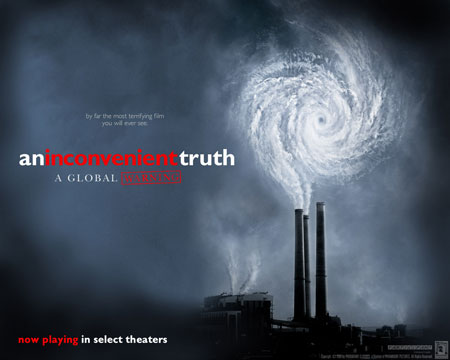
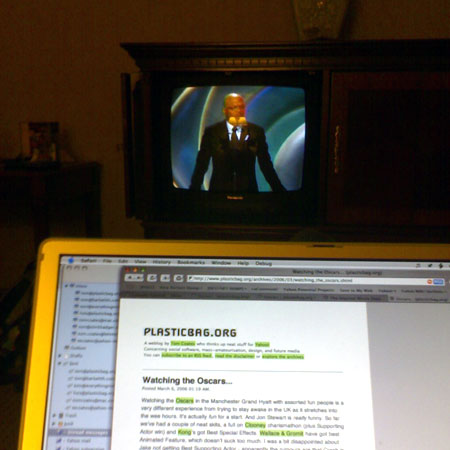

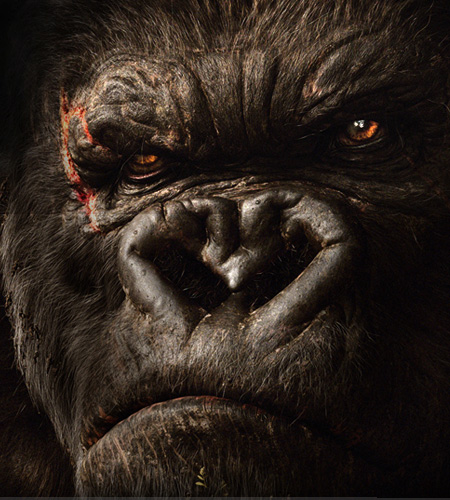
 Last night – eight hours after landing back in the UK – I went to see a very special movie. In fact I went to see a very special preview of a very special movie. I went to see
Last night – eight hours after landing back in the UK – I went to see a very special movie. In fact I went to see a very special preview of a very special movie. I went to see 